Introduction
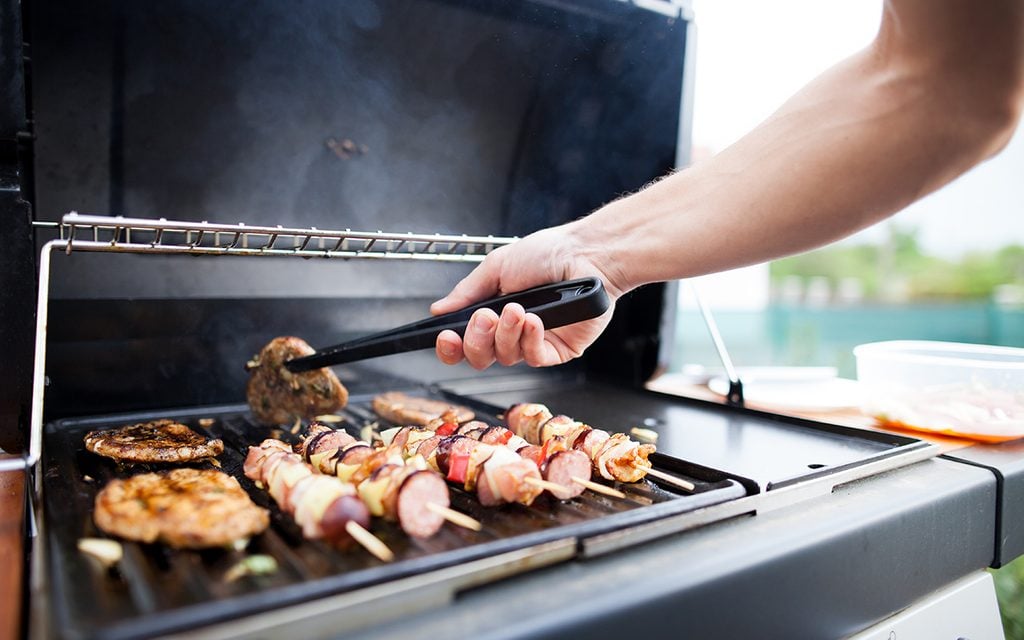
In the world of grilling, the choice between natural gas and propane as fuel sources has been a subject of debate among outdoor cooking enthusiasts. Both options have their own advantages and disadvantages, which makes it essential to understand the key factors to consider when making a decision. This article aims to provide a comprehensive comparison between natural gas and propane grills, shedding light on their advantages, disadvantages, cost implications, and impact on flavor and cooking performance. By the end, readers will have a clearer understanding of which option suits their individual preferences and needs. Whether it’s the convenience of natural gas or the efficiency of propane, the choice is yours to make.
Overview Of Natural Gas Grill Vs Propane
When it comes to grilling with different fuels, the choice between natural gas and propane is a common dilemma. Natural gas grills are connected to a gas line, providing a continuous supply of fuel, while propane grills require portable propane tanks. Natural gas grills are more convenient as there is no need to worry about running out of fuel, while propane grills offer increased portability. Additionally, natural gas is typically cheaper than propane, but it burns faster. Ultimately, the choice between natural gas and propane boils down to the availability of fuel sources and the cost considerations in your area.
Factors To Consider When Choosing Between Natural Gas Grill And Propane
When deciding between a natural gas grill and a propane grill, there are several important factors to consider. Firstly, you need to evaluate the availability of fuel sources in your area. If you already have a natural gas line, it might be more convenient to opt for a natural gas grill. However, if you don’t have access to a natural gas line or if portability is a priority, a propane grill might be the better choice. Additionally, you should consider the cost of fuel in your area and the long-term cost implications of using natural gas versus propane. Ultimately, your decision should be based on your individual needs and preferences.
Natural Gas Grill
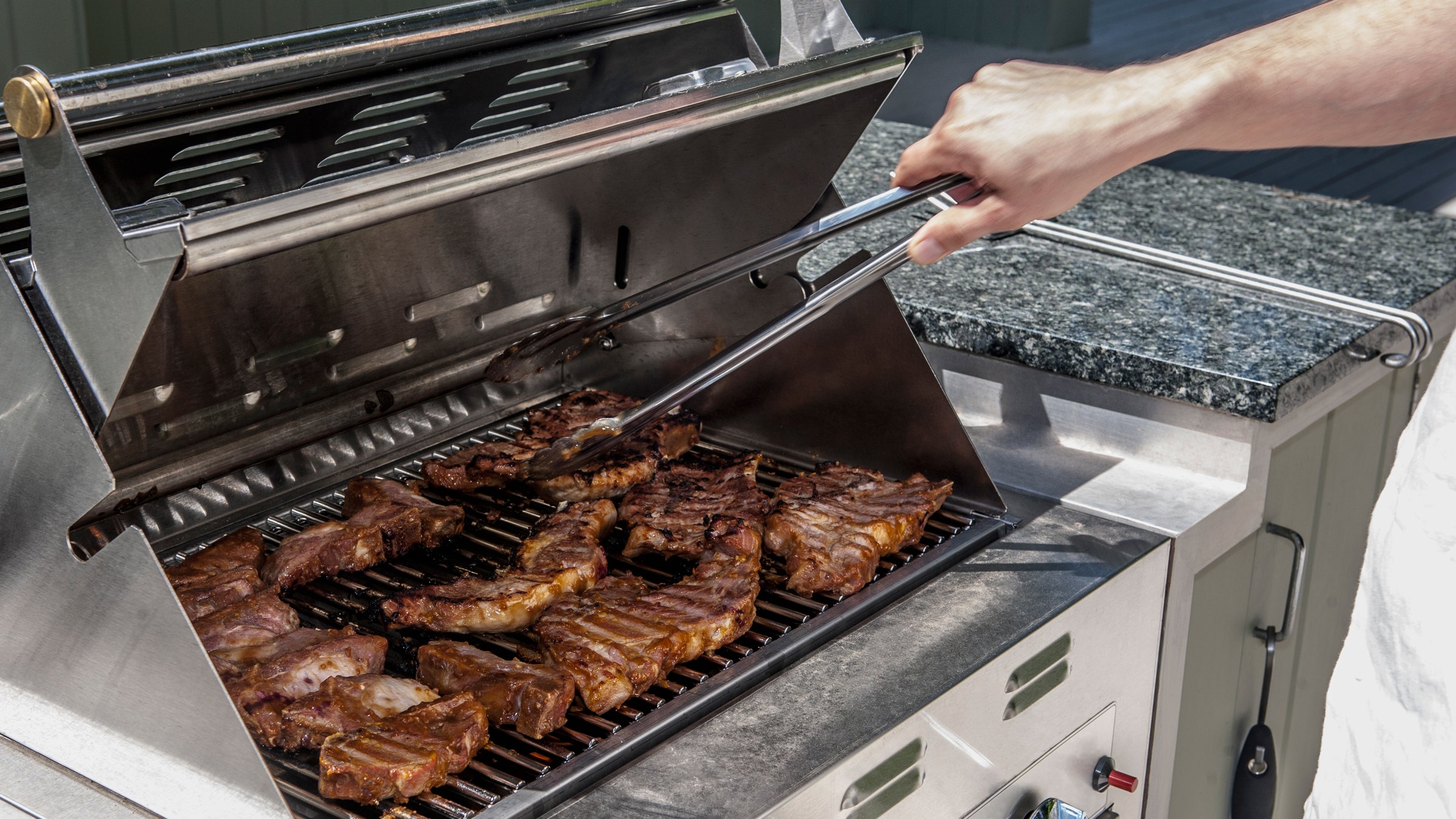
A natural gas grill is a cooking appliance that utilizes natural gas as its fuel source. It is connected to a natural gas line, allowing for a continuous supply of fuel without the need for refilling or replacing propane tanks.
This convenience is a major advantage of natural gas grills, as there is no risk of running out of fuel during a barbecue. Additionally, natural gas is generally less expensive than propane, making it a cost-effective option for long-term use. However, it is important to note that natural gas burns faster than propane, so it may require more frequent refueling. Nevertheless, the convenience and cost savings make natural gas grills a popular choice for outdoor cooking enthusiasts.
Advantages Of Using A Natural Gas Grill
Using a natural gas grill offers several advantages. Firstly, it provides the convenience of a continuous fuel supply, eliminating the need to refill or replace propane tanks. This means no interruptions during your grilling sessions. Secondly, natural gas is generally less expensive than propane, resulting in cost savings in the long run. Additionally, natural gas burns cleaner and produces fewer emissions compared to propane, making it an environmentally friendly choice. Lastly, natural gas grills often have larger cooking surfaces and more powerful burners, allowing for faster and more efficient cooking. Overall, a natural gas grill provides convenience, cost savings, and enhanced cooking capabilities.
Disadvantages Of Using A Natural Gas Grill
While there are many advantages to using a natural gas grill, it’s important to consider the disadvantages as well. One of the main drawbacks is that natural gas grills require a dedicated natural gas line, which may not be available in all locations. This limits the portability of the grill and makes it difficult to use in areas without a natural gas connection. Additionally, installing a natural gas line can be expensive upfront. Moreover, natural gas grills generally have lower heat output compared to propane grills, which may result in slightly longer cooking times. It’s important to weigh these factors when deciding between a natural gas grill and propane grill.
Propane Grill
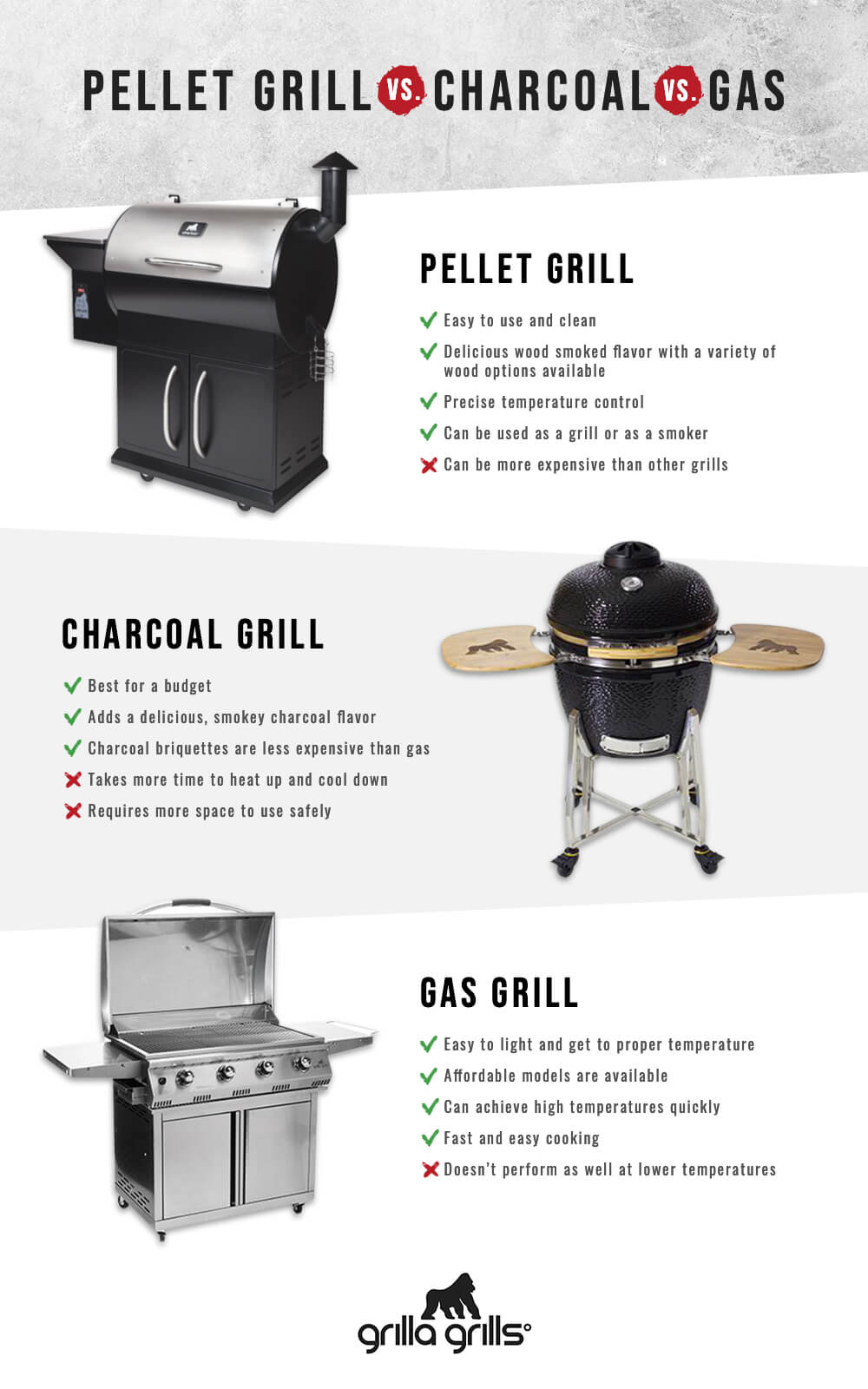
Propane grills are another popular choice for outdoor cooking enthusiasts. One of the main advantages of using a propane grill is its portability. Unlike natural gas grills, propane grills can be used anywhere as long as you have a propane tank. This makes them ideal for camping trips, picnics, and tailgating events. Additionally, propane grills tend to have higher heat output compared to natural gas grills. This means that they can reach higher temperatures faster, allowing for quicker cooking times. However, it is important to note that propane tanks need to be refilled or replaced periodically, which may incur additional costs.
Advantages Of Using A Propane Grill
Propane grills offer several advantages for outdoor cooking enthusiasts. One of the main benefits is their portability. Unlike natural gas grills, propane grills can be used anywhere as long as you have a propane tank. This makes them perfect for camping trips, picnics, and tailgating events. Additionally, propane grills tend to have higher heat output compared to natural gas grills. They can reach higher temperatures faster, allowing for quicker cooking times. This makes them ideal for searing steaks or achieving a perfect char on your burgers. Lastly, propane tanks can be easily refilled or replaced, ensuring that you always have a readily available fuel source for your grill.
Disadvantages Of Using A Propane Grill
There are a few disadvantages to using a propane grill. Firstly, propane grills require a propane tank, which needs to be refilled or replaced regularly. This can be an additional expense and inconvenience compared to natural gas grills, which are connected to a permanent gas line. Additionally, propane tanks can run out of fuel during a cookout, requiring you to switch out the tank or interrupt the cooking process. Lastly, propane grills may produce more carbon emissions compared to natural gas grills, which can contribute to environmental pollution. Despite these drawbacks, many outdoor cooking enthusiasts still prefer propane grills for their convenience and performance.
Cost Comparison
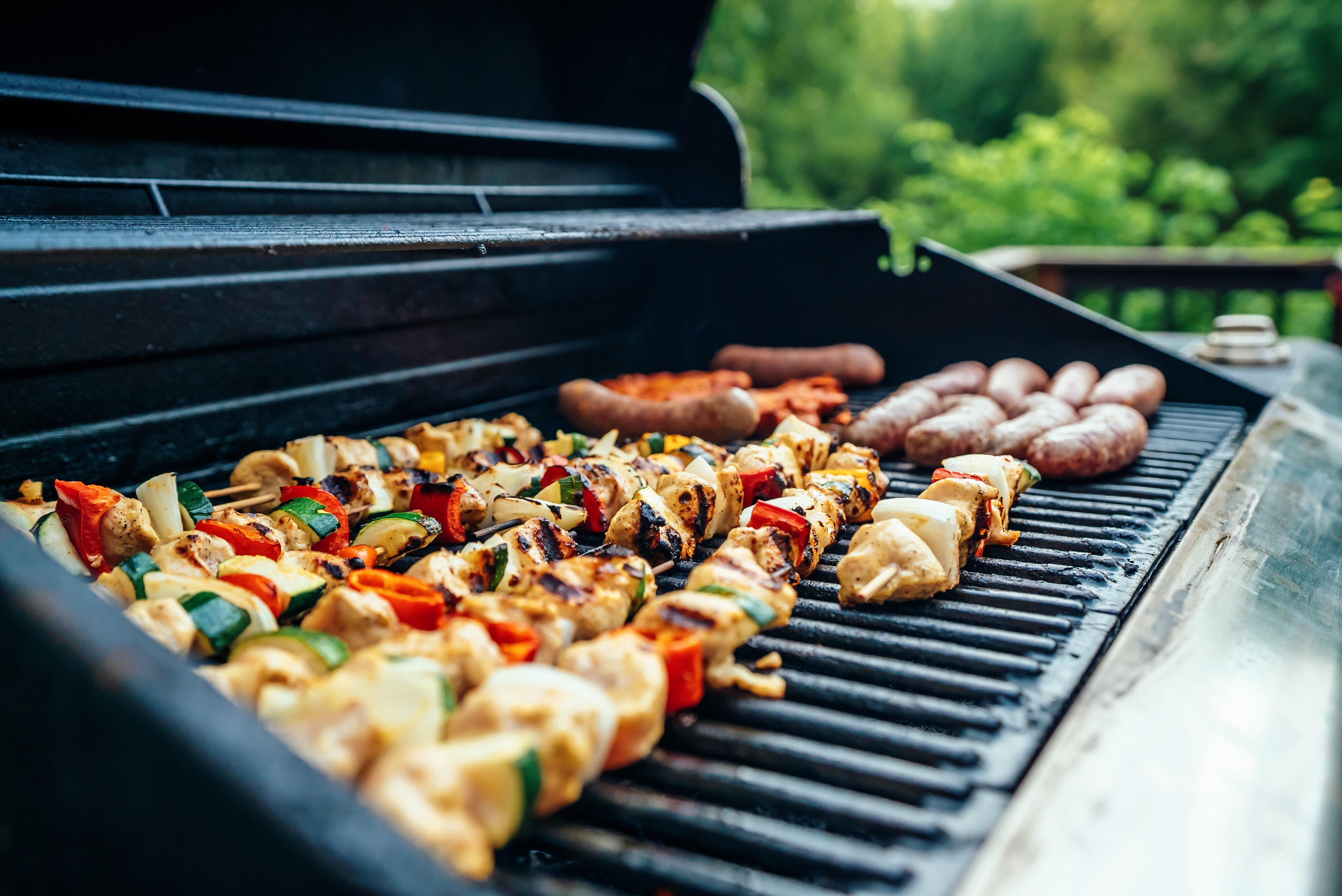
When it comes to comparing the costs between natural gas grills and propane grills, there are a few factors to consider. Firstly, natural gas is generally cheaper than propane, making it a more cost-effective option in the long run. However, it’s important to note that natural gas burns faster than propane, meaning you may go through it more quickly. Additionally, the cost of installation for a natural gas grill can be higher, as it requires a gas line connection. On the other hand, propane grills require propane tanks that need to be refilled or replaced, adding an ongoing expense. Ultimately, the costs will vary depending on your location and usage, so it’s important to consider your specific circumstances when deciding between the two options.
Cost Considerations For Natural Gas Grill Vs Propane
When it comes to cost considerations, there are a few factors to keep in mind when choosing between a natural gas grill and a propane grill. Firstly, propane is generally more expensive than natural gas on a per-unit basis. This means that refilling or replacing propane tanks can add up over time. On the other hand, natural gas is typically cheaper and can save you money in the long run. However, it’s important to note that the cost of installation for a natural gas grill can be higher, as it requires a gas line connection. Ultimately, the costs will vary depending on your location, usage, and installation requirements. So, it’s crucial to consider your specific circumstances when deciding between the two options.
Long-term Cost Implications Of Using Natural Gas Grill Vs Propane
Using a natural gas grill can have long-term cost advantages compared to a propane grill. While the upfront cost of installation for a natural gas grill may be higher due to the gas line connection, the ongoing cost of fuel is typically lower. Natural gas is generally less expensive than propane on a per-unit basis. Over time, this can translate into significant savings, especially for frequent grillers. Additionally, natural gas grills eliminate the need to constantly refill or replace propane tanks, further reducing costs. Overall, choosing a natural gas grill can result in long-term savings and a more cost-effective grilling experience.
Flavour And Cooking Performance
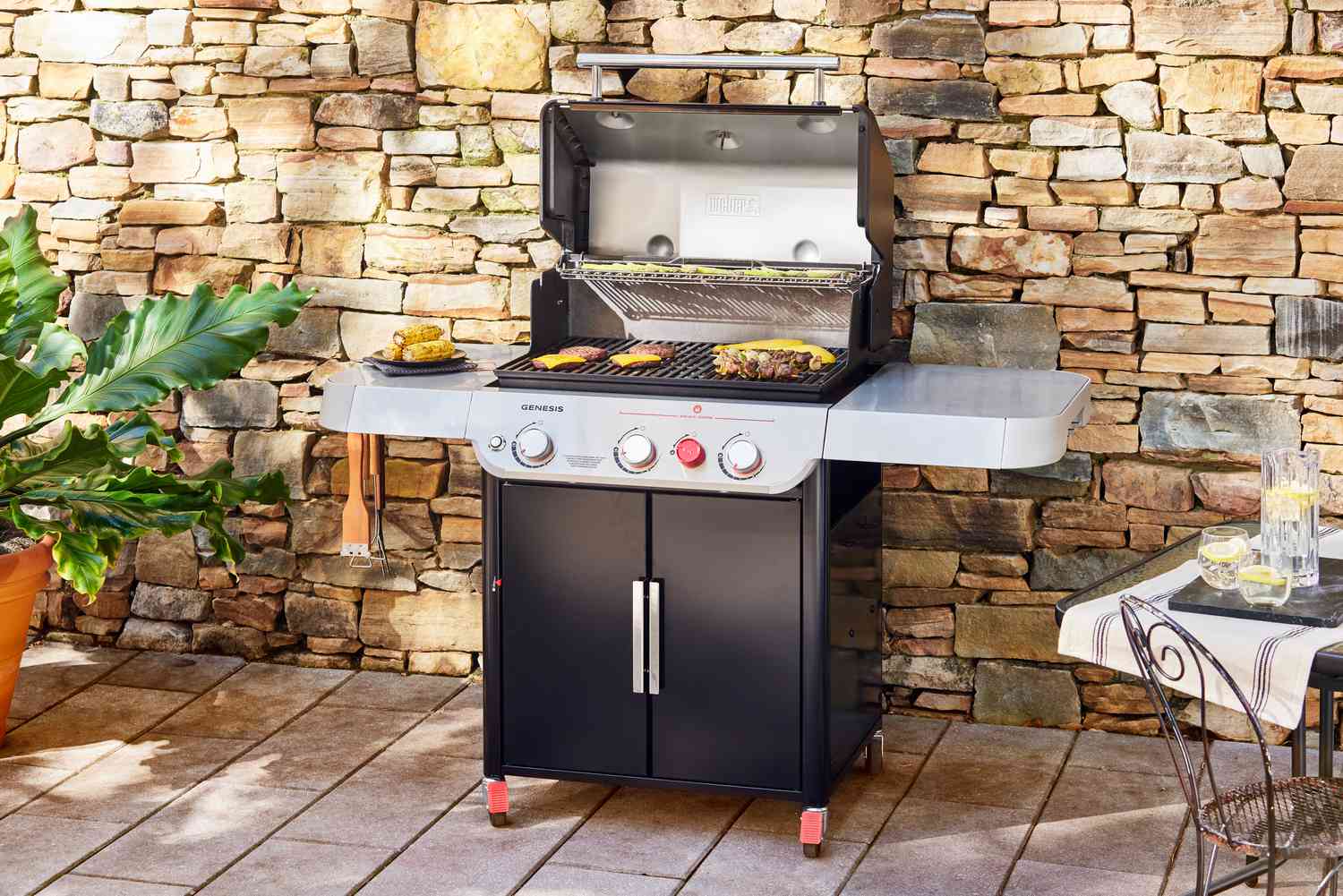
When it comes to flavor, both natural gas grills and propane grills produce similar results. The type of gas used does not significantly impact the taste of the food you are grilling. However, it is important to note that the quality of ingredients, marinades, and seasoning play a more significant role in the final flavor.
In terms of cooking performance, both natural gas grills and propane grills offer excellent heat output and temperature control. They can reach high temperatures quickly and maintain consistent heat throughout the grilling process. The cooking performance of both types of grills largely depends on the quality and design of the grill itself, rather than the type of gas used.
In conclusion, when it comes to flavor and cooking performance, the choice between natural gas and propane is more about personal preference and convenience, rather than significant differences. Both types of grills can deliver delicious results, so it ultimately comes down to factors such as accessibility, cost, and ease of use.
Impact Of Natural Gas Vs Propane On Flavour
When it comes to the flavor of grilled food, the type of gas used, whether natural gas or propane, does not have a significant impact. The taste of the food is primarily influenced by the quality of ingredients, marinades, and seasonings. Both natural gas and propane grills provide a consistent heat source that can achieve high temperatures quickly, allowing for effective searing and caramelization. Therefore, the choice between natural gas and propane for grilling is more about personal preference and convenience, rather than a difference in flavor. Ultimately, it’s the ingredients and cooking techniques that truly enhance the taste of your grilled dishes.
Cooking Performance Differences Between Natural Gas Grill And Propane Grill
When it comes to cooking performance, there are minimal differences between a natural gas grill and a propane grill. Both types of grills provide a consistent heat source that allows for effective searing, grilling and caramelization of food. They can reach high temperatures quickly, which is essential for achieving that perfect char on your steak or veggies. Whether you choose to use a natural gas grill or a propane grill, you can expect excellent cooking results and deliciously grilled dishes. Ultimately, your choice should be based on convenience and availability of fuel sources.
Conclusion
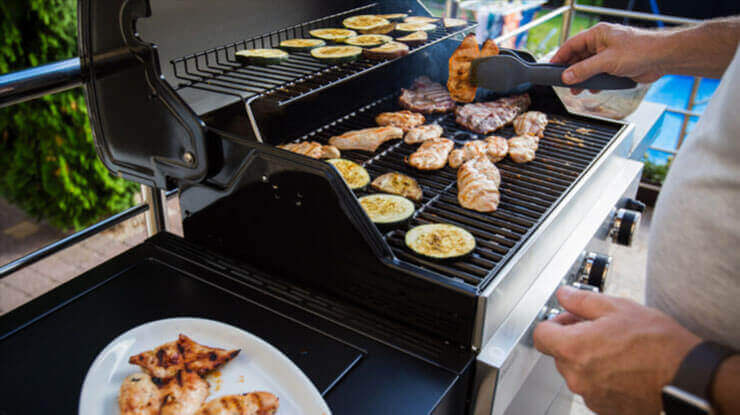
In conclusion, when it comes to choosing between a natural gas grill and a propane grill, there are several factors to consider. Both types of grills offer excellent cooking performance and can produce deliciously grilled dishes. The decision ultimately depends on individual preferences, convenience of fuel sources, and cost considerations. Natural gas grills provide the convenience of a continuous fuel supply, while propane grills offer greater portability. Additionally, propane grills have a higher heat output, allowing for hotter and faster cooking. Ultimately, it is important to assess your needs and select the grill that best suits your lifestyle.
Key Takeaways On Choosing Between Natural Gas Grill And Propane Grill
When deciding between a natural gas grill and a propane grill, there are a few key factors to consider. First, evaluate the availability and convenience of fuel sources in your area. If you have access to a natural gas line, a natural gas grill may offer the convenience of a continuous fuel supply. On the other hand, if portability is important to you, a propane grill may be a better choice. Additionally, consider the cost implications, as natural gas tends to be cheaper but burns faster, while propane burns hotter and requires less fuel over time. Ultimately, the decision should align with your individual preferences and needs.
Recommendations Based On Individual Preferences And Needs
When it comes to choosing between a natural gas grill and a propane grill, the decision should ultimately be based on individual preferences and needs. Here are some recommendations to help you make the right choice:
- Convenience and availability: If you have access to a natural gas line, a natural gas grill may offer the convenience of a continuous fuel supply. However, if portability is important to you or if you don’t have access to a gas line, a propane grill may be a better option.
- Budget: Consider your budget and fuel costs. While natural gas tends to be cheaper, it burns faster than propane. Propane, on the other hand, burns hotter and requires less fuel over time.
- Flavor and cooking performance: If you prioritize flavor, some grillmasters believe that natural gas may offer a cleaner taste. However, both fuels can produce delicious results, so this might not be a significant factor for everyone.
- Long-term plans: If you are planning to move or relocate in the future, a propane grill may be more versatile since it can be easily transported. Natural gas grills, on the other hand, are typically installed permanently.
Overall, carefully evaluate your specific needs, preferences, and circumstances to determine whether a natural gas grill or a propane grill is the best fit for you. Remember to consider factors such as convenience, cost, flavor, and long-term plans to make an informed decision.
FAQ About Natural Gas Grill Vs Propane: Grilling With Different Fuels
Q: What is the main difference between a natural gas grill and a propane grill?
A: The main difference lies in the type of fuel they use. Natural gas grills are connected to a natural gas line at home, while propane grills use refillable propane tanks.
Q: Are natural gas grills more cost-effective than propane grills?
A: In the long run, natural gas grills tend to be more cost-effective since they are connected to a fixed gas line, eliminating the need for regularly refilling propane tanks.
Q: Can you convert a natural gas grill to use propane or vice versa?
A: Some grills are convertible, but not all. It’s important to check with the manufacturer if a conversion kit is available for your specific model before attempting to switch between natural gas and propane.
Q: Which type of grill is better for the environment – natural gas or propane?
A: Both natural gas and propane are considered clean-burning fuels, but natural gas is often regarded as the more eco-friendly option due to its minimal emissions during combustion.
Q: Do natural gas grills and propane grills differ in terms of heat output or cooking efficiency?
A: Generally, natural gas and propane grills offer similar heat output and cooking efficiency. The choice between the two fuels is more about convenience and availability at your location.
Q: How do I decide between a natural gas grill and a propane grill for my outdoor cooking needs?
A: Consider factors such as your home setup (availability of natural gas lines), frequency of use, convenience of refilling tanks, and environmental considerations when choosing between a natural gas grill and a propane grill.

The Bird ‘n’ Bike Cafe ‘n’ Bar is a charming establishment nestled in the heart of Chiltern, Victoria, where locals and visitors alike come together to enjoy delicious food, great company, and a warm, welcoming atmosphere. With 1187 likes and 136 check-ins, it’s clear that the Bird ‘n’ Bike has captured the hearts of many. Our cafe and Bar is open from Wednesday to Sunday, inviting guests to start their day with us from 8 am to 2:30 pm. Whether you prefer to dine in and savor the cozy ambiance or grab a delicious meal, we’ve got you covered.